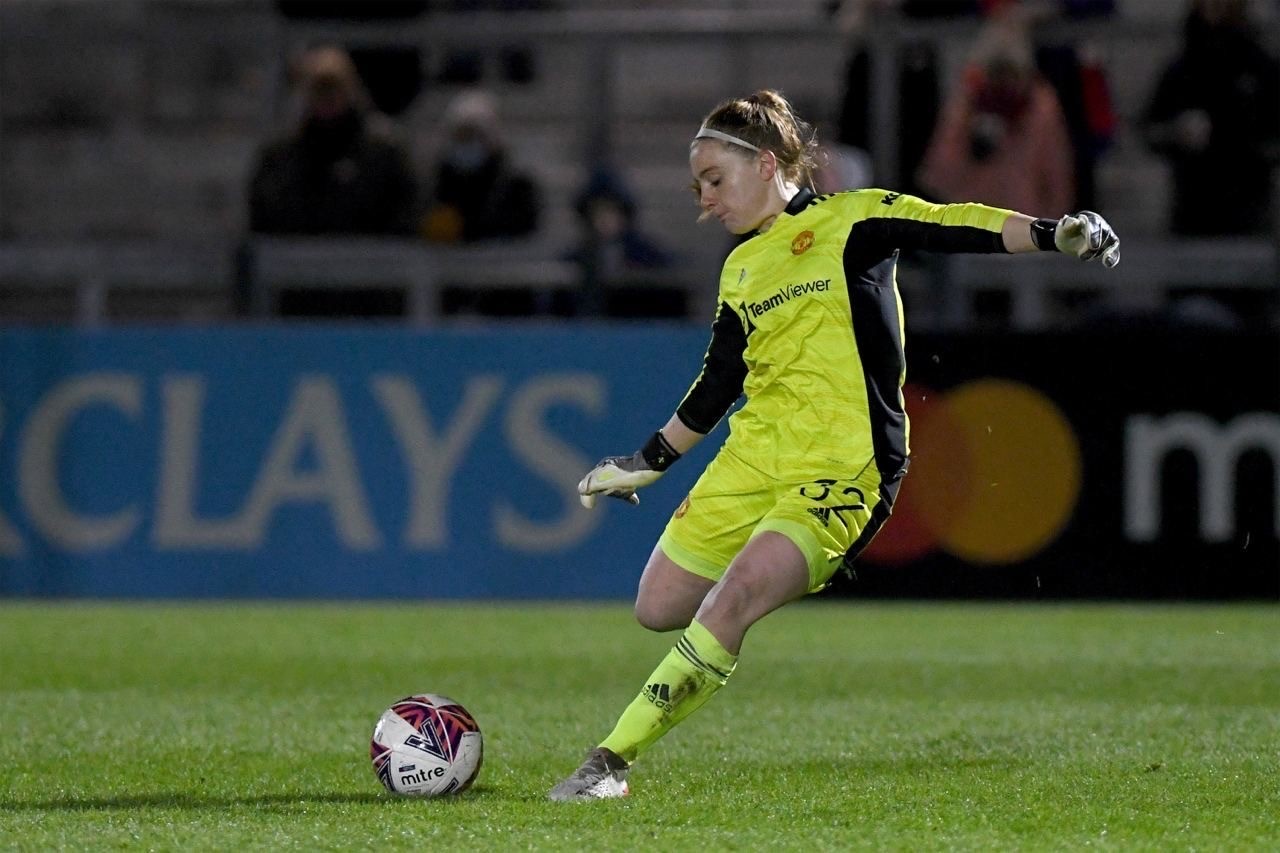Manchester United keeper Sophie Baggaley warns of the dangers of social drug taking in football
The Manchester United goalkeeper saw a friend have their career ended by drugs

Manchester United goalkeeper Sophie Baggaley witnessed first-hand a teammate slipping into social drugs as a teenager, subsequently tearing down her burgeoning football career.
The 25-year-old is now striving to prevent young girls from falling down a similar slippery slope after watching a former England youth teammate drop out of the game.
Baggaley revealed the experience opened her eyes to drugs in sport aged just eighteen and upon reflection believes her former colleague suffered from a lack of education at the time, seemingly unaware of the potential consequences of her actions.
“I don’t think she realised what repercussions she could face for taking recreational drugs,” said Baggaley, who joined the Reds from Bristol City last summer.
“Up until that stage, we had not really been tested a lot as young athletes and it wasn’t too well talked about. So, I think the impact it could have on her career was just a bit unexpected for her.
“It brought awareness; it's always been in the back of my mind. She was the same position as me, she was a goalkeeper as well.
“It was really frustrating for me because she used to play instead of me but obviously, she didn't take things quite as seriously and has fallen out of football now.
Get FourFourTwo Newsletter
The best features, fun and footballing quizzes, straight to your inbox every week.
“I do not know what she’s doing anymore, which is quite sad really. She could have done with a bit more support. I do not really know whether she received that.
“Now I know that there's support in place for people who are caught taking social drugs. It's not just about catching them and saying they're cheating; it’s about helping that person and the individual.”
Baggaley is one of 11 members of UK Anti-Doping’s Athlete Commission, which aims to ensure that the athlete perspective is included at the heart of anti-doping in the UK, having joined in lockdown.
“Now I know you could have reported it, I could have spoken to someone earlier, but at the time, I didn't really know what those avenues were,” explained Baggaley, awaiting a first cap for the Lionesses having represented England throughout the age groups and featured in several senior squads.
And the shot-stopper, who currently plays under boss Marc Skinner, is hoping to continue to raise awareness of the education available to athletes via UK Anti-Doping and all the secure reporting routes.
The youngest member of the UK Anti-Doping (UKAD) Athlete Commission believes anonymity is essential, especially for inexperienced sportspeople who may have to report more senior individuals, to ensure all sport is contested on a level playing field.
“I would have second thoughts if it wasn't going to be anonymous,” Baggaley added.
“I think just removing that makes it so much easier. And people obviously won't be as scared of the negative backlash.
“If it's someone who's got a lot of power within the team, it would be harder to speak about. But having those anonymous phonelines and emails via UKAD’s Protect Your Sport campaign makes it so much easier. Even if my teammates were aware of who was involved somehow, it’s comforting to know that UKAD would keep the informant’s identity confidential no matter what.”
With attention turning to the Euros in England later this year it is vital that any obstacles to a rigorous anti-doping regime - including those presented by the pandemic - have been overcome and Baggaley believes things are virtually back to normal ahead of the summer showpiece.
She said: “UKAD and other organisations faced challenges during lockdown. It was hard to keep up the same amount of testing and some athletes may have seen that as a window to increase their chances of winning whatever competition they're entering.
“But I think UKAD has done well coming out of the pandemic. They really ramped things up again, I think it's pretty much back to normal and it's in a good place right now going into the summer.”
Protecting clean sport depends on everyone in sport playing their part to maintain a level playing field. If you have any suspicions that something’s not right, no matter how small, search Protect Your Sport or email pys@reportingdoping.com. Your identity will be kept 100% confidential throughout.

James Andrew is the editor of FourFourTwo, overseeing both the magazine and website. James is an NCTJ qualified journalist and began his career as a news reporter in regional newspapers in 2006 before moving into sport a year later. In 2011 he started a six year stint on the sports desk at the Daily Mail and MailOnline. James was appointed editor of FourFourTwo in December 2019. Across his career James has interviewed the likes of Franco Baresi, Sir Alex Ferguson, David Beckham and Michael Owen. James has been a Fulham season ticket holder since the mid-1990s and enjoys watching them home and away, through promotion and relegation.
